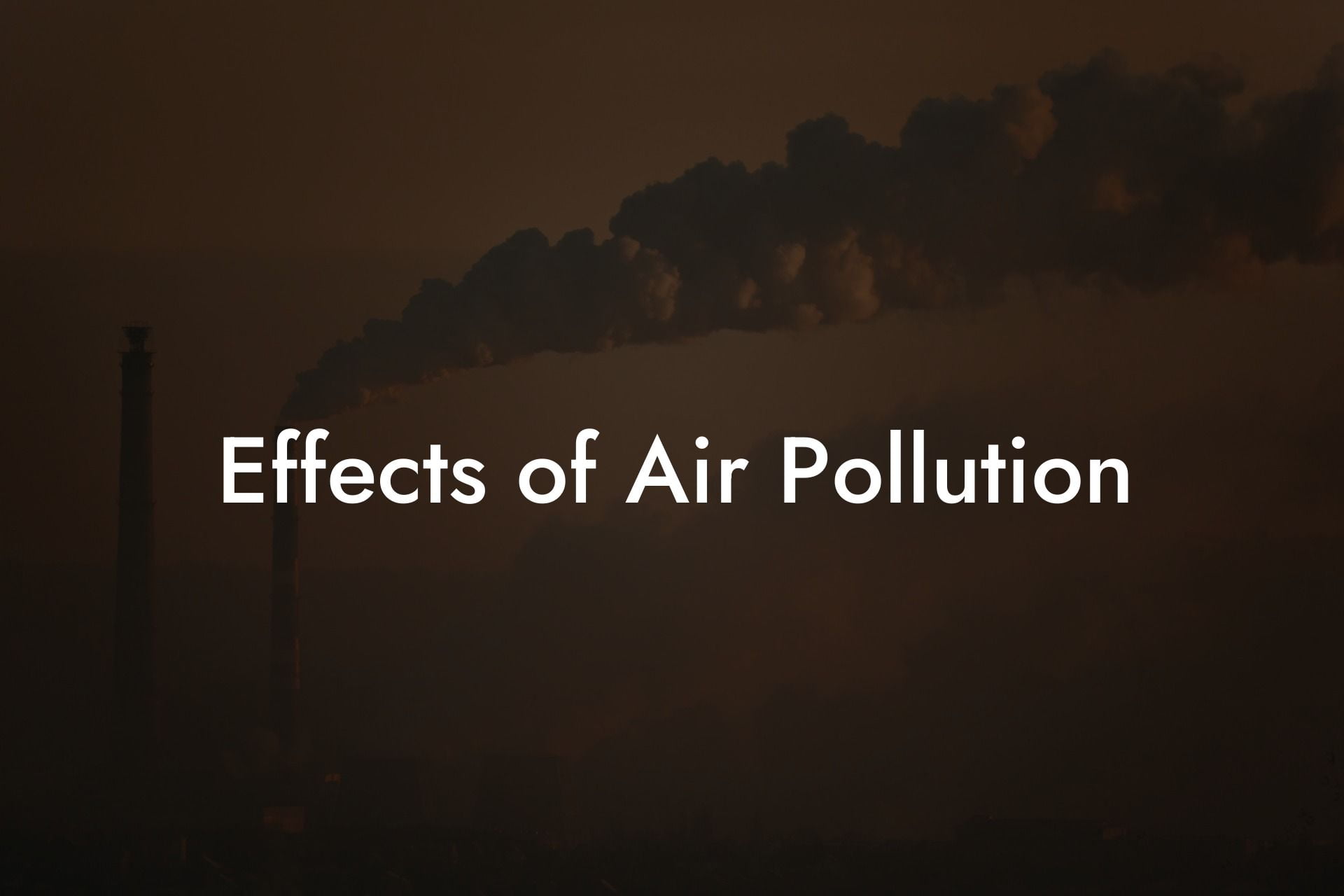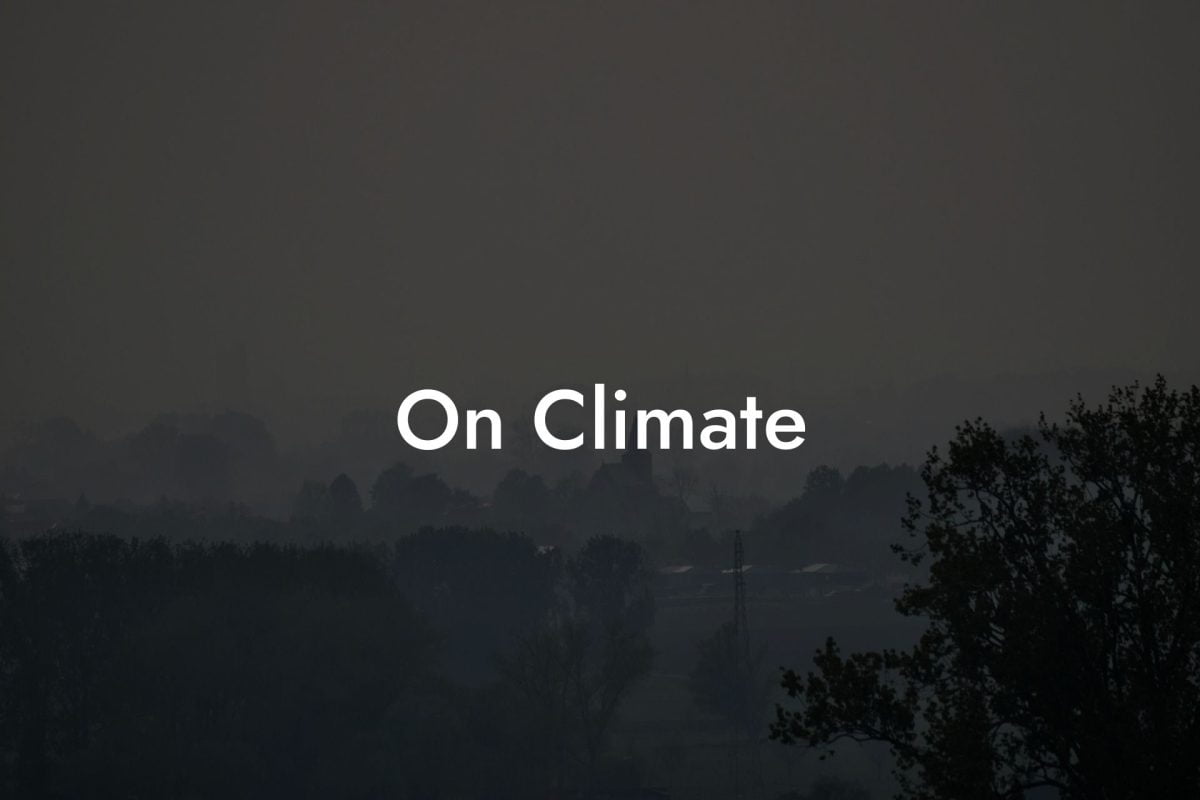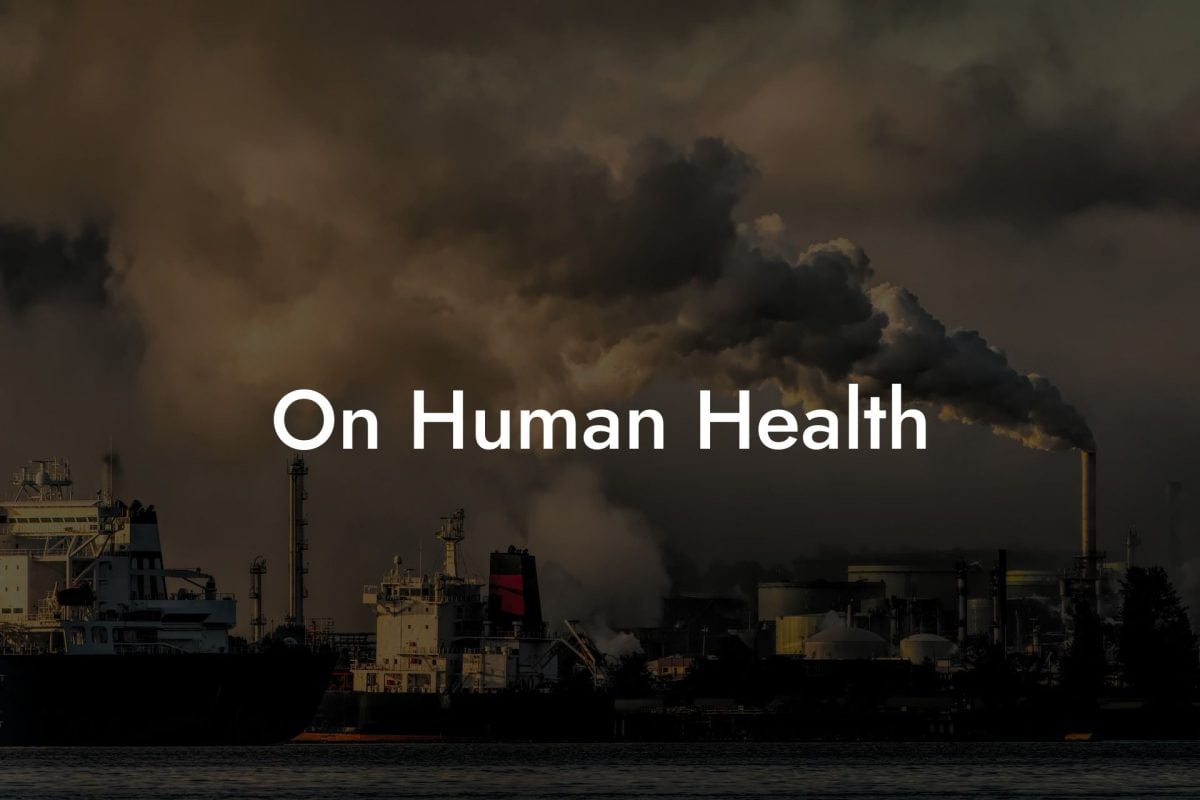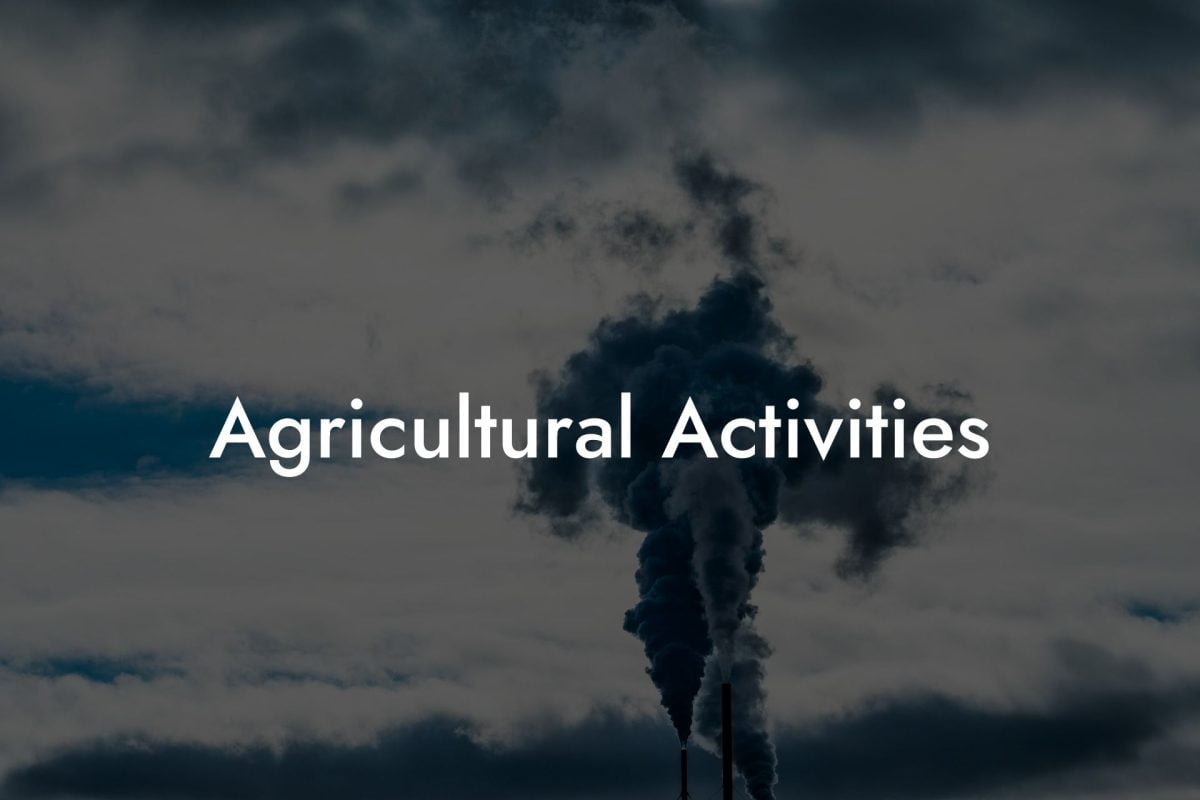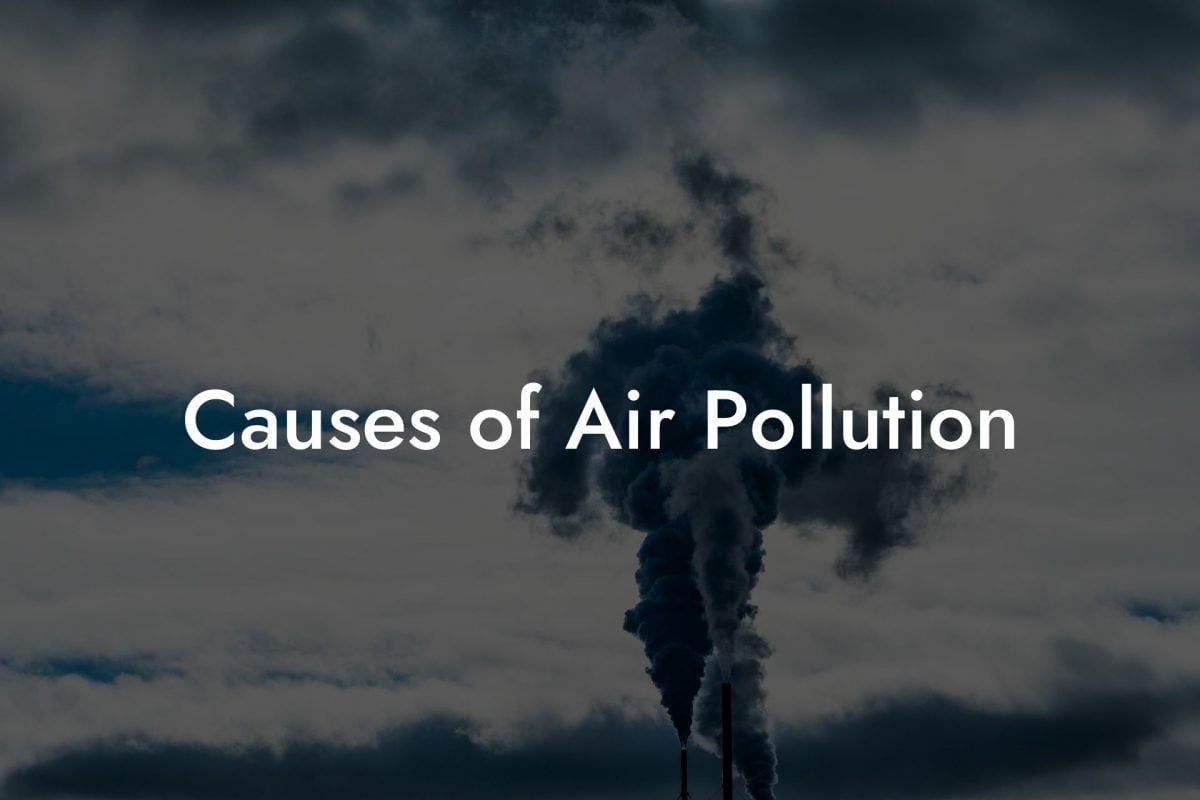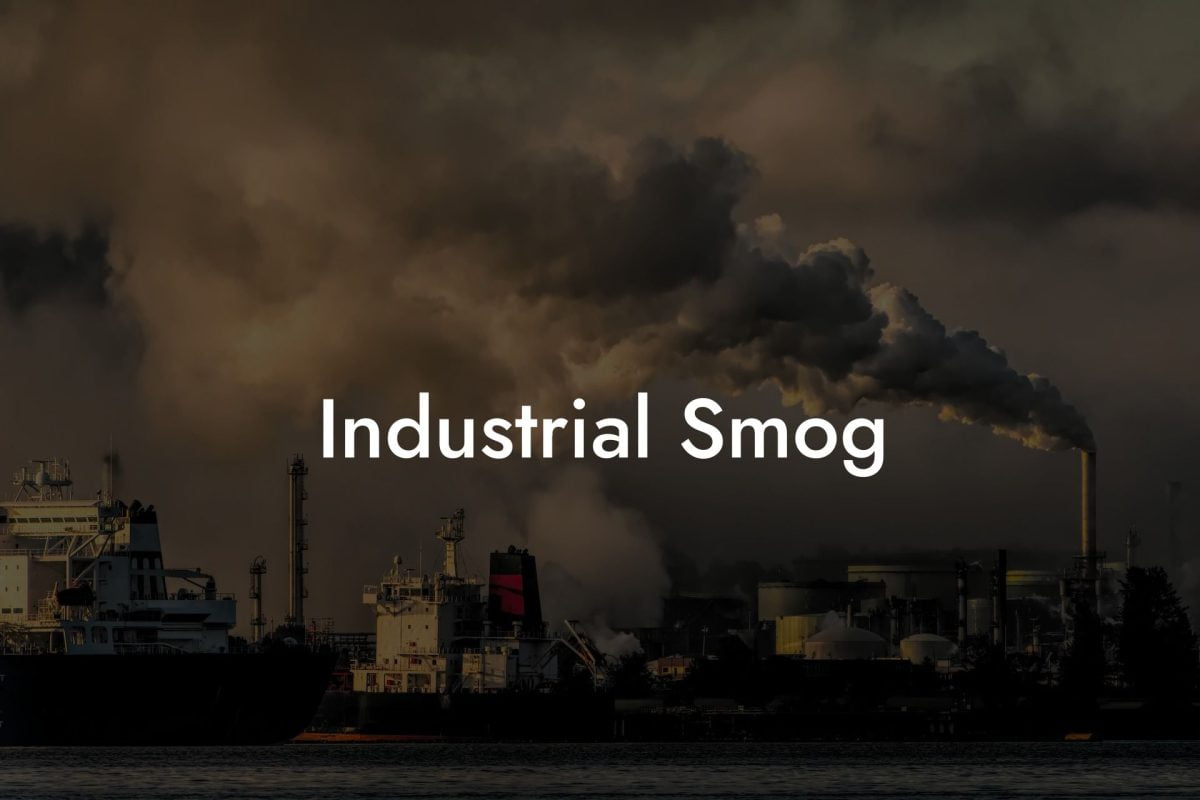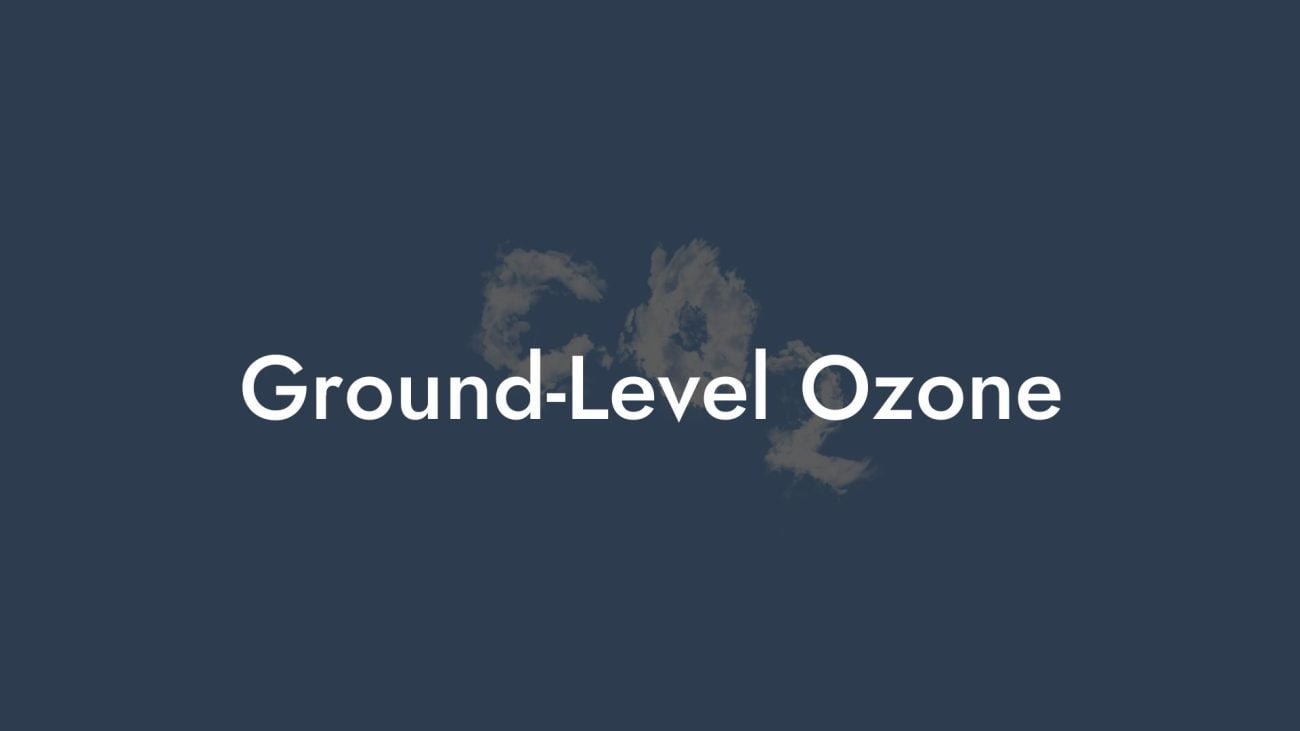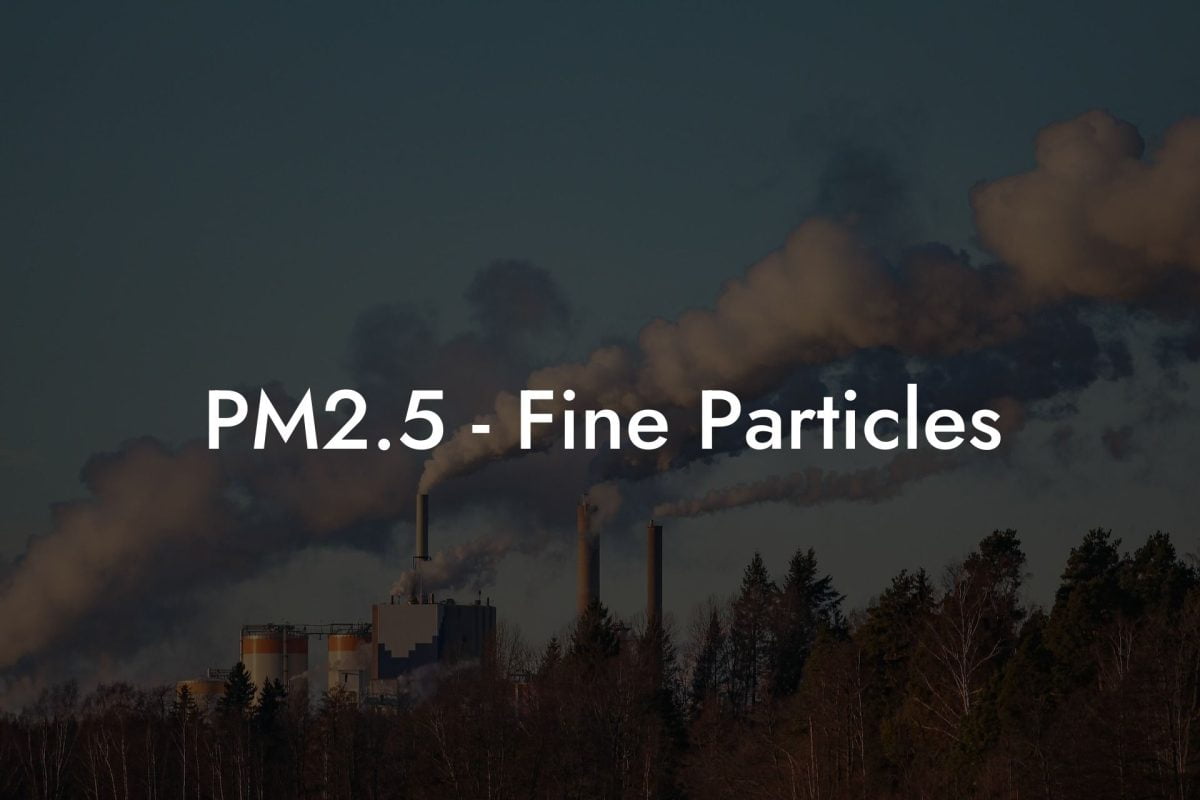Introduction to the Effects of Air Pollution
Air pollution is a significant environmental hazard that affects everything from our health to the planet's ecosystems. Understanding the myriad effects of air pollution is essential for developing effective strategies to combat it.
The Multifaceted Impact of Air Pollution
Air pollution has a wide range of effects, impacting human health, the environment, and the climate. These impacts are often interrelated, creating complex challenges for communities and policymakers.
Health Effects of Air Pollution
Respiratory and Cardiovascular Diseases
Exposure to air pollutants like particulate matter, nitrogen oxides, and sulfur dioxide can cause and exacerbate respiratory conditions such as asthma, chronic bronchitis, and lung cancer. These pollutants also increase the risk of cardiovascular diseases, including heart attacks and strokes.
Impact on Vulnerable Populations
Children, the elderly, and individuals with pre-existing health conditions are particularly vulnerable to the effects of air pollution. Prolonged exposure can lead to developmental issues in children and worsen health conditions in adults.
Mental Health and Cognitive Effects
Emerging research suggests that air pollution may also affect mental health and cognitive functions, with studies indicating a possible link to conditions like depression and dementia.
Environmental Effects
Ecosystem Damage
Air pollutants can harm wildlife and ecosystems. Acid rain, caused by sulfur dioxide and nitrogen oxides, damages forests, lakes, and rivers, affecting biodiversity and ecosystem health.
Reduced Visibility
Particulate matter in the air can lead to reduced visibility, known as haze, affecting the beauty of natural landscapes and potentially impacting tourism.
Impact on Climate
Certain air pollutants, particularly greenhouse gases like carbon dioxide and methane, contribute significantly to climate change. Conversely, some pollutants, such as aerosols, can have a cooling effect by reflecting sunlight away from the Earth.
Economic Effects
Healthcare Costs
The health effects of air pollution lead to increased healthcare costs, burdening both individuals and public health systems.
Loss of Productivity
Air pollution can reduce worker productivity due to increased sickness and cognitive impairments.
Damage to Crops and Buildings
Pollutants like ozone and acidic compounds can damage crops, reducing agricultural yields, and corrode buildings and monuments, leading to higher maintenance and restoration costs.
Social and Cultural Effects
Quality of Life
Poor air quality can affect the overall quality of life, restricting outdoor activities and contributing to social inequalities.
Cultural Heritage
Air pollution can damage historical and cultural landmarks, leading to the loss of cultural heritage.
Monitoring and Understanding Air Pollution
The AQI is a tool used globally to communicate how polluted the air is or is forecast to be. It's crucial for public awareness and guiding daily activities, especially for vulnerable groups.
Research and Data Analysis
Ongoing research and data analysis are essential for understanding the full scope of air pollution effects and for developing targeted interventions.
Effects of Air Pollution in the UK
Current Challenges
The UK faces several air quality challenges, particularly in urban areas with high traffic emissions and industrial activities.
Government Initiatives
The UK government has implemented various measures to improve air quality, including emission reduction initiatives and promoting cleaner transport options.
UK Air Pollution: Your Ultimate Air Pollution Database
Comprehensive Information and Data
UK Air Pollution offers an extensive database on air pollution across the UK, providing vital information for understanding its effects on health, the environment, and society.
Why UK Air Pollution?
Our platform is the perfect resource for all products, services, and research projects related to air pollution in the UK, offering detailed, engaging, and informative content.
Enhancing Air Quality Management and Research
With UK Air Pollution, gain in-depth insights into the effects of air pollution, supporting your efforts in research, policy-making, and environmental management.
Frequently Asked Questions
What is Air Pollution?
Air pollution is the presence of harmful substances in the Earth's atmosphere, including gases, particulates, and biological molecules, which can cause harm to humans, other living organisms, or the natural environment.
How Does Air Pollution Affect Human Health?
Air pollution can lead to respiratory diseases, cardiovascular problems, aggravated asthma, and even lung cancer. It can also cause short-term effects such as eye irritation, throat soreness, and fatigue.
What Are the Long-Term Health Effects of Air Pollution?
Long-term exposure to air pollution can lead to chronic respiratory diseases, heart disease, lung cancer, and can even affect brain health and development in children.
Can Air Pollution Exacerbate Asthma and Allergies?
Yes, air pollution can trigger asthma attacks and intensify allergic reactions due to pollutants like ozone, particulate matter, and sulfur dioxide irritating the respiratory system.
What are the Effects of Air Pollution on Children?
Children are more vulnerable to air pollution as their lungs are still developing. It can cause respiratory infections, reduced lung function, and can impact cognitive development.
How Does Air Pollution Impact the Elderly?
The elderly are particularly susceptible to the effects of air pollution due to their often weakened immune systems and pre-existing health conditions. It can exacerbate heart and lung diseases leading to higher mortality rates.
What is the Effect of Air Pollution on Pregnant Women?
Exposure to air pollution during pregnancy is linked to low birth weight, preterm birth, and developmental issues in the fetus. It can also increase the risk of pregnancy complications.
How Does Air Pollution Affect Indoor Air Quality?
Indoor air quality can be significantly impacted by outdoor air pollution, especially in urban areas. Indoor pollutants can combine with outdoor pollutants, aggravating health issues.
What are the Economic Impacts of Air Pollution?
The economic impacts of air pollution include increased healthcare costs, lost labor productivity, and expenses related to controlling pollution and cleaning up polluted environments.
Can Air Pollution Lead to Mental Health Issues?
Recent studies suggest a link between air pollution and mental health issues like depression and anxiety, although more research is needed to fully understand this connection.
How Does Air Pollution Contribute to Climate Change?
Certain air pollutants, particularly greenhouse gases like carbon dioxide and methane, contribute to global warming and climate change by trapping heat in the Earth's atmosphere.
What is the Impact of Air Pollution on Wildlife?
Air pollution can harm wildlife by degrading their habitats, affecting food sources, and directly impacting their health and reproductive capabilities.
How Does Air Pollution Affect Plants and Trees?
Air pollution can damage plants and trees by inhibiting their growth, causing leaf damage, and reducing their ability to photosynthesize, which can also impact ecosystems and biodiversity.
What Are Particulate Matter and Their Health Effects?
Particulate matter (PM) consists of tiny particles or droplets in the air. Fine particulate matter (PM2.5) can penetrate deep into the lungs and bloodstream, causing respiratory and cardiovascular issues.
Can Air Pollution Cause Heart Disease?
Yes, long-term exposure to air pollution, especially particulate matter, is linked to an increased risk of heart disease, including heart attacks and strokes.
What is Smog, and How Does it Affect Us?
Smog is a type of air pollution, typically a mix of ground-level ozone and particulate matter, that can cause
respiratory problems, reduce lung function, and exacerbate asthma and other lung diseases.
How Does Air Pollution Affect Visibility?
Air pollution, particularly particulate matter, can reduce visibility, leading to haze and smoggy conditions, which can have implications for safety and enjoyment of natural landscapes.
What are the Effects of Air Pollution on Water Bodies?
Air pollution can affect water bodies through acid rain, which occurs when pollutants from the air are deposited in rainwater, harming aquatic life and altering water chemistry.
How Does Air Pollution Impact Urban Residents Compared to Rural Residents?
Urban residents often face higher air pollution levels due to higher traffic volumes, industrial activities, and density of buildings, whereas rural residents might be more affected by agricultural and natural sources of pollution.
What is the Role of Governments in Managing the Effects of Air Pollution?
Governments play a crucial role by setting air quality standards, regulating emissions, monitoring air pollution levels, and implementing policies to reduce pollution and protect public health.
Can Wearing Masks Reduce the Effects of Air Pollution?
Wearing masks, particularly those designed to filter out fine particulate matter, can help reduce the inhalation of pollutants, offering some protection, especially in high pollution areas.
How Can Individuals Reduce Their Exposure to Air Pollution?
Individuals can reduce their exposure by staying indoors during high pollution days, using air purifiers, avoiding heavy traffic areas, and supporting and practicing environmentally friendly behaviors.
What Are the Global Initiatives to Combat Air Pollution?
Global initiatives include agreements like the Paris Agreement to reduce greenhouse gas emissions, international collaborations to monitor and research air pollution, and global efforts to promote sustainable practices and technologies.


